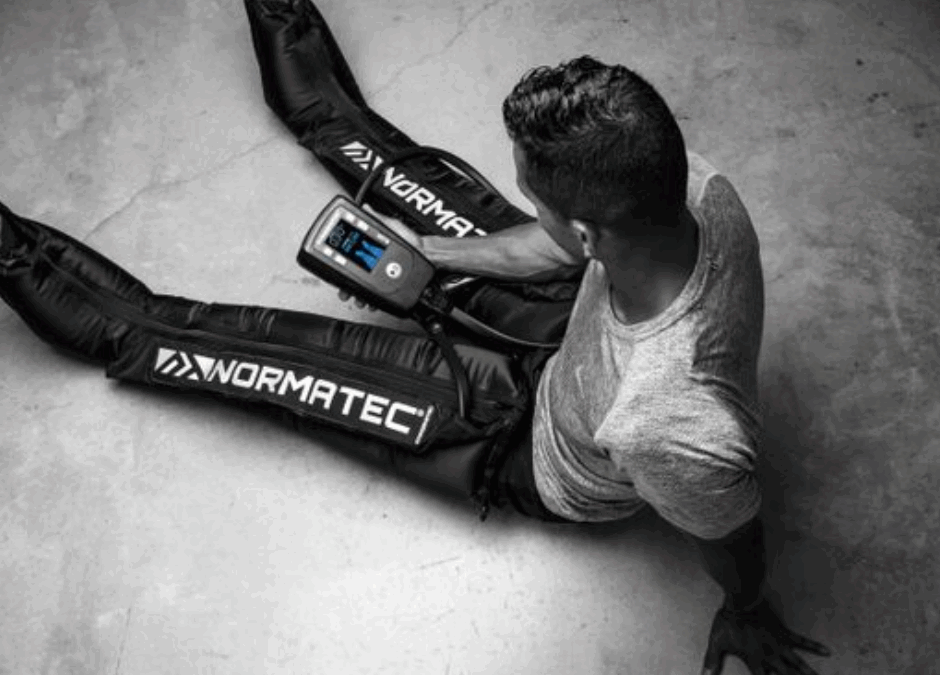The grind of athletic competition is relentless, pushing the human body to its limits. While intense training and strategic game plans are crucial, an often-underestimated hero in an athlete’s journey is recovery training. Far from being a passive break, intelligent recovery practices are the cornerstone of sustained performance, long-term health, and year-round participation in sport.
Recovery does not mean we rest on the couch. Modern recovery training encompasses a proactive approach, integrating techniques that optimize physiological and psychological restoration.1 This includes targeted modalities like active recovery (low-intensity exercise), foam rolling, stretching, massage, cryotherapy, heat therapy, proper nutrition, hydration, and crucially, adequate sleep, to name a few.
Enhanced Performance: The direct link between recovery and performance is undeniable.2 During strenuous training, muscle fibers incur microscopic tears, and energy stores are depleted. Without proper recovery, these tissues cannot fully repair and rebuild stronger.3 This leads to accumulated fatigue, diminished power output, reduced endurance, and impaired reaction times.4 Effective recovery training, however, facilitates quicker physiological adaptation, allowing athletes to absorb greater training loads and translate them into superior performance when it matters most – on game day. It enables the nervous system to reset, improving coordination and mental acuity, which are vital for executing complex skills under pressure.5
Longevity and Injury Prevention: Perhaps the most significant benefit of robust recovery protocols is their role in injury prevention. Overtraining, often a consequence of insufficient recovery, is a prime culprit in athletic injuries.6 When the body is constantly stressed without adequate time to repair, it becomes more susceptible to muscle strains, ligament sprains, stress fractures, and overuse injuries. Recovery training actively mitigates these risks by promoting tissue repair, reducing inflammation, and restoring muscle balance and flexibility. Athletes who prioritize recovery are less likely to experience nagging aches and pains, allowing them to consistently engage in their sport without being sidelined.
Year-Round Competition: For many athletes, the goal is not just to perform well in a single event or season, but to maintain a high level of performance throughout the entire year. This is particularly true for professional athletes or those involved in year-round leagues. Recovery training is the bridge that connects one demanding period to the next. By consistently prioritizing recovery, athletes can manage the cumulative fatigue of a long season, adapt to varying training demands, and bounce back faster from competitions. This proactive approach ensures they remain resilient, durable, and ready to compete at their peak, minimizing time off due to injury or burnout.
To wrap it all up, recovery training is no longer an optional add-on; it is an indispensable component of any serious athlete’s regimen.7 The body’s ability to maintain a high performance level year-round, it is crucial to consider every piece of the “pie”. Body restoration over rep maximal rep count will safeguard their health, and ensure they can continue to pursue their passion for sport, stronger and healthier, all year long.
Compete offers a variety of recovery aids at both our Lake Forest and Yorba Linda facilities. Our hands-on services include soft tissue massage, scraping, cupping, and passive stretching. Athletes also use modalities such as Normatech compression boots, Compex, and Marc-Pro electric stimulation, along with Hyper Ice percussion massage guns, in order to recover faster. Check out and book your next session here.
Sources:
Why Athletes Need Smart Recovery for Peak Performance – Activ Therapy
https://www.activtherapy.com.au/blog/why-athletes-need-smart-recovery-for-peak-performance
Rest and Recovery are critical for athletes of all ages, from students to pros to older adults
UC Health – https://www.uchealth.org/today/rest-and-recovery-for-athletes-physiological-psychological-well-being
It’s the Recovery, Not the Exercise, That Builds Muscles
UNC Health Talk – https://healthtalk.unchealthcare.org/its-the-recovery-not-the-exercise-that-builds-muscles/
Impacts of Sleep on Athletic Performance – The Sports Institute
https://thesportsinstitute.com/impacts-of-sleep-on-athletic-performance/
What the Nervous System Tells Us About Recovery
Polar Global – https://www.polar.com/en/journal/nervous-system-fatigue
Overtraining Syndrome: Symptoms, Causes & Treatment Options – Cleveland Clinic
https://my.clevelandclinic.org/health/diseases/overtraining-syndrome
Top Recovery Techniques for Athletes: Ice Baths, Compression, and More
Sports Medicine of the Rockies – https://sportsmedrockies.com/top-recovery-techniques-for-athletes-ice-baths-compression-and-more/

